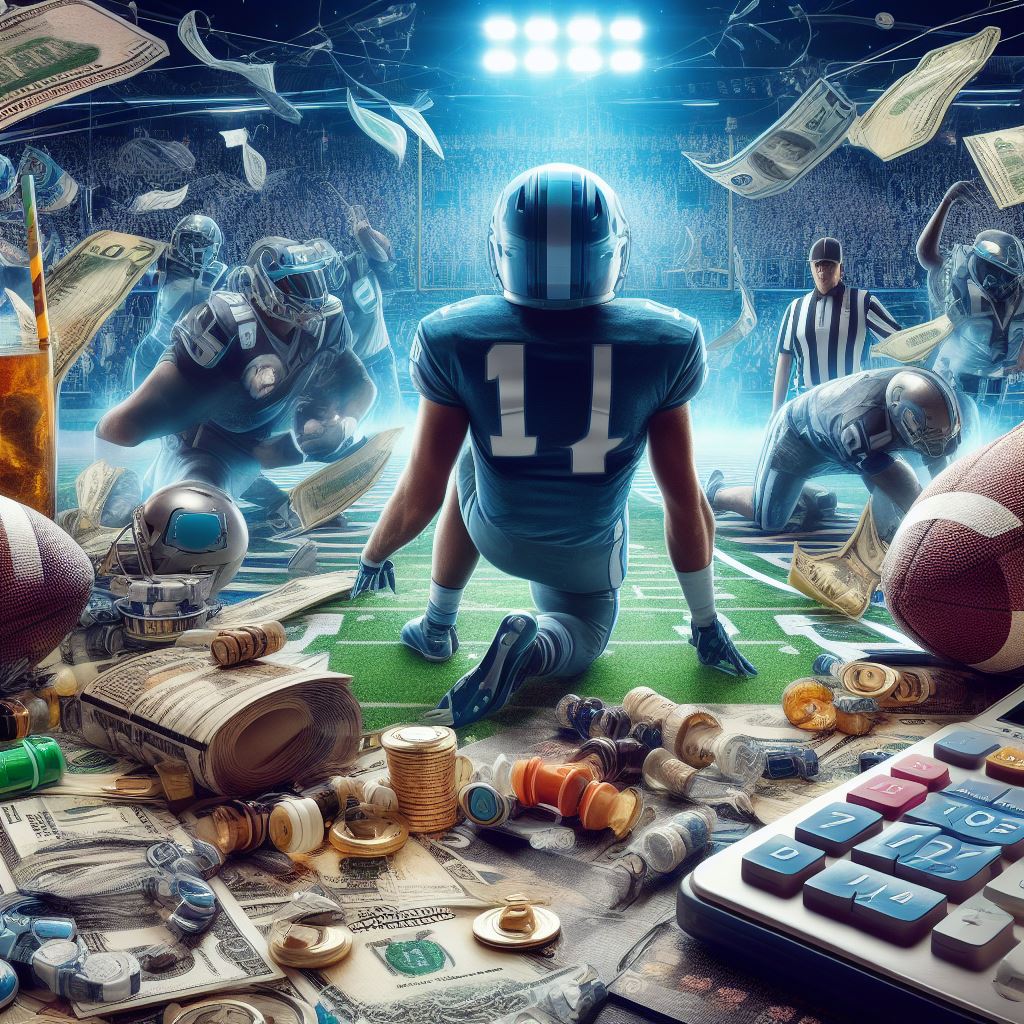thucviland.com – Moneyline betting in college football offers a thrilling opportunity to wager on the underdog and potentially earn significant returns. While underdogs are generally considered less likely to win, there are strategic situations where betting big on the underdog can be a shrewd move. In this article, we will explore the world of moneyline betting in college football and provide valuable insights on when to confidently back the underdog. By understanding key factors such as team dynamics, player matchups, and situational analysis, you’ll be equipped to make calculated and bold bets that can lead to substantial profits.
Understanding Moneyline Betting in College Football
Moneyline betting is a straightforward form of wagering where you bet on the outright winner of a game, regardless of the point spread. In college football, Moneyline betting odds are assigned to both the favorite and the underdog. The odds indicate the potential payout for a winning bet. While favorites have lower odds due to their higher chances of winning, underdogs offer higher odds to compensate for their perceived lower probability of victory. Understanding how Moneyline betting odds work is crucial for identifying profitable opportunities when betting on underdogs.
Assessing Team Dynamics and Performance
Analyzing team dynamics and performance is essential when considering a bet on an underdog. Look beyond win-loss records and delve into factors such as team chemistry, coaching strategies, recent form, and injuries. Some underdog teams may have a history of performing well against strong opponents or possess a particular playing style that can trouble favorites. By studying these aspects, you can identify underdogs with the potential to spring surprises and secure victories against more favored opponents.
Evaluating Player Matchups and Skill Disparities
Player matchups play a significant role in college football games. Assess the individual matchups between key players, such as quarterbacks, running backs, and defensive stars. Identify any significant skill disparities that could favor the underdog. For example, an underdog team with an exceptional quarterback facing a weak pass defense may have a higher chance of pulling off an upset. Analyzing these matchups helps you gauge the underdog’s potential to exploit weaknesses in the favorite’s lineup.
Situational Analysis and Motivation
Situational analysis involves considering the specific circumstances surrounding a game. Factors such as home field advantage, conference rivalries, revenge games, and weather conditions can influence outcomes. Underdogs often possess a stronger motivation to prove themselves against favored opponents, especially in high-stakes situations. Additionally, situational factors like inclement weather or a hostile crowd can level the playing field, increasing the underdog’s chances of an upset. By examining these situational aspects, you can identify opportunities where underdogs are poised to perform well and potentially win.


Bankroll Management and Responsible Betting
While betting on underdogs can be enticing, it’s essential to manage your bankroll responsibly. Allocate a portion of your bankroll specifically for underdog bets and avoid chasing losses or betting beyond your means. Implement a sound staking strategy by betting a consistent percentage of your bankroll on each wager. Remember that even though underdog bets can yield significant returns, they are still considered riskier. Exercise discipline, conduct thorough research, and remain patient when waiting for the right opportunities to bet boldly on underdogs.
Conclusion
Moneyline betting on underdogs in college football presents an exciting avenue for potentially lucrative returns. By understanding the intricacies of moneyline betting, assessing team dynamics, evaluating player matchups, analyzing situational factors, and practicing responsible bankroll management, you can make informed decisions and confidently bet big on underdogs. While upsets are not guaranteed, identifying strategic opportunities where underdogs have a realistic chance of winning can lead to rewarding outcomes. Remember to approach betting with caution, balance risk with reward, and enjoy the thrilling journey that Moneyline betting in college football offers.
FAQs
1. What is moneyline betting in college football?
Moneyline betting in college football is a wagering option where you bet on the outright winner of a game, regardless of the point spread. Unlike point spread betting, the focus is solely on picking the winning team. The odds associated with each team indicate the potential payout for a winning bet. Underdogs have higher odds, offering the potential for greater returns if they win, while favorites have lower odds due to their higher chances of winning.
2. Why would I consider betting on underdogs in college football?
Betting on underdogs in college football can be a strategic move to maximize potential profits. Underdogs are teams that are perceived to have a lower chance of winning a game. However, there are situations where underdogs possess certain advantages, such as favorable matchups, strong team dynamics, or situational factors. By identifying these opportunities, betting big on underdogs can lead to substantial payouts if they manage to pull off an upset victory.
3. How can I assess team dynamics and performance when considering an underdog bet?
When evaluating underdog bets, it’s essential to analyze team dynamics and performance. Look beyond win-loss records and consider factors such as team chemistry, coaching strategies, recent form, and player injuries. Some underdog teams may have a history of performing well against strong opponents or possess specific strengths that can trouble favorites. By studying these aspects, you can gain insights into the underdog’s potential to compete and potentially secure a victory against a favored opponent.
4. What role do player matchups play in underdog betting?
Player matchups play a crucial role in college football games. Assess the individual matchups between key players, such as quarterbacks, running backs, and defensive stars. Identify any significant skill disparities that could favor the underdog. For instance, an underdog team with a talented quarterback facing a weak pass defense might have a higher chance of causing an upset. Analyzing these individual matchups helps gauge the underdog’s potential to exploit weaknesses in the favorite’s lineup.
5. How important is situational analysis when betting on underdogs?
Situational analysis is vital when considering underdog bets in college football. Factors such as home field advantage, conference rivalries, revenge games, and weather conditions can all impact game outcomes. Underdogs often possess a stronger motivation to prove themselves against favored opponents, especially in high-stakes situations. Additionally, situational factors like inclement weather or a hostile crowd can level the playing field, increasing the underdog’s chances of an upset. By examining these situational aspects, you can identify opportunities where underdogs are poised to perform well and potentially win.










